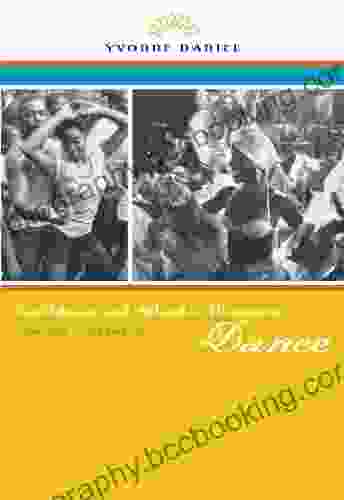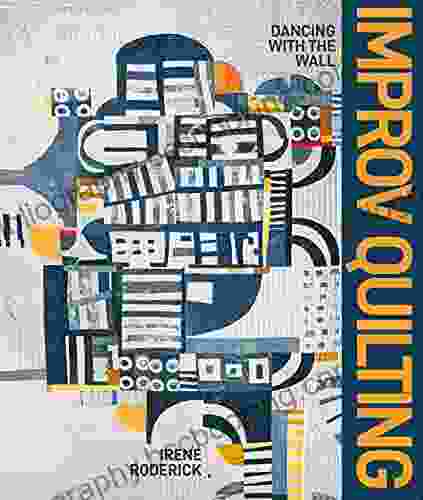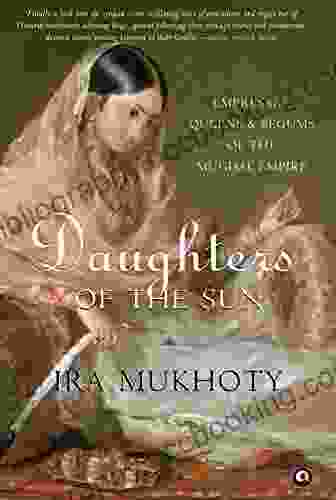Caribbean and Atlantic Diaspora Dance: Igniting Citizenship

Caribbean and Atlantic Diaspora Dance: Igniting Citizenship explores the rich and diverse dance traditions of the Caribbean and Atlantic diaspora, examining how they have shaped and continue to shape notions of citizenship and belonging. Through a range of case studies from across the region, the book demonstrates how dance has been used as a tool for social and political change.
The book is divided into three parts. The first part, "Dance and the Politics of Belonging," examines how dance has been used to negotiate issues of race, class, and gender in the Caribbean and Atlantic diaspora. The second part, "Dance and the Performance of Citizenship," explores how dance has been used to create and perform new forms of citizenship. The third part, "Dance and the Future of the Diaspora," considers the role of dance in shaping the future of the Caribbean and Atlantic diaspora.
5 out of 5
| Language | : | English |
| File size | : | 2307 KB |
| Text-to-Speech | : | Enabled |
| Screen Reader | : | Supported |
| Enhanced typesetting | : | Enabled |
| Print length | : | 282 pages |
The book features contributions from a range of scholars working in the fields of dance, anthropology, and sociology. These essays provide a comprehensive overview of the current state of research on Caribbean and Atlantic diaspora dance. The book also includes a number of original case studies that offer new insights into the role of dance in the diaspora.
Caribbean and Atlantic Diaspora Dance: Igniting Citizenship is an essential resource for scholars interested in the Caribbean and Atlantic diaspora, dance, and the politics of belonging. The book's interdisciplinary approach and its focus on original research make it a valuable contribution to the field.

Dance and the Politics of Belonging
Dance has long been used as a tool for social and political change in the Caribbean and Atlantic diaspora. In the early days of the slave trade, dance was used as a way for slaves to resist their oppressors. Slaves would often dance in secret, using their bodies to express their pain and suffering. Dance also served as a way for slaves to maintain their cultural identity and to pass on their traditions to their children.
In the post-emancipation era, dance continued to play an important role in the lives of Caribbean and Atlantic diaspora communities. Dance was used to celebrate freedom and to commemorate the struggles of the past. It was also used to create new forms of community and to build solidarity among people of African descent.
In the 20th century, dance became a powerful force for social and political change in the Caribbean and Atlantic diaspora. Dance was used to challenge racism, colonialism, and imperialism. It was also used to promote peace and understanding between different cultures.
Today, dance continues to be an important part of the Caribbean and Atlantic diaspora. It is used to celebrate culture, to promote social change, and to build community. Dance is a powerful force for good, and it has the power to ignite citizenship and to create a more just and equitable world.

Dance and the Performance of Citizenship
Dance has also been used to create and perform new forms of citizenship in the Caribbean and Atlantic diaspora. In the early days of the slave trade, dance was used to create a sense of community among slaves. Slaves would often dance together in Free Download to feel connected to each other and to their homeland. Dance also served as a way for slaves to resist their oppressors. By dancing, slaves were able to assert their own humanity and to challenge the dehumanizing conditions of slavery.
In the post-emancipation era, dance continued to play an important role in the lives of Caribbean and Atlantic diaspora communities. Dance was used to celebrate freedom and to commemorate the struggles of the past. It was also used to create new forms of community and to build solidarity among people of African descent.
In the 20th century, dance became a powerful force for social and political change in the Caribbean and Atlantic diaspora. Dance was used to challenge racism, colonialism, and imperialism. It was also used to promote peace and understanding between different cultures.
Today, dance continues to be an important part of the Caribbean and Atlantic diaspora. It is used to celebrate culture, to promote social change, and to build community. Dance is a powerful force for good, and it has the power to ignite citizenship and to create a more just and equitable world.

Dance and the Future of the Diaspora
The future of the Caribbean and Atlantic diaspora is uncertain. However, one thing is for sure: dance will continue to play an important role in the lives of diaspora communities. Dance is a powerful force for good, and it has the power to ignite citizenship and to create a more just and equitable world.
The Caribbean and Atlantic diaspora is a diverse and vibrant community. It is a community that is constantly evolving and changing. However, one thing that remains constant is the importance of dance. Dance is a powerful force for good, and it has the power to ignite citizenship and to create a more just and equitable world.
Free Download your copy of Caribbean and Atlantic Diaspora Dance: Igniting Citizenship today!
5 out of 5
| Language | : | English |
| File size | : | 2307 KB |
| Text-to-Speech | : | Enabled |
| Screen Reader | : | Supported |
| Enhanced typesetting | : | Enabled |
| Print length | : | 282 pages |
Do you want to contribute by writing guest posts on this blog?
Please contact us and send us a resume of previous articles that you have written.
 Book
Book Novel
Novel Page
Page Chapter
Chapter Text
Text Story
Story Genre
Genre Reader
Reader Library
Library Paperback
Paperback E-book
E-book Magazine
Magazine Newspaper
Newspaper Paragraph
Paragraph Sentence
Sentence Bookmark
Bookmark Shelf
Shelf Glossary
Glossary Bibliography
Bibliography Foreword
Foreword Preface
Preface Synopsis
Synopsis Annotation
Annotation Footnote
Footnote Manuscript
Manuscript Scroll
Scroll Codex
Codex Tome
Tome Bestseller
Bestseller Classics
Classics Library card
Library card Narrative
Narrative Biography
Biography Autobiography
Autobiography Memoir
Memoir Reference
Reference Encyclopedia
Encyclopedia Rui Zhi Dong
Rui Zhi Dong Jack Couffer
Jack Couffer J P Mcevoy
J P Mcevoy Ian Roberts
Ian Roberts Terry Bennett
Terry Bennett Michael Lydon
Michael Lydon J C Moore
J C Moore Tom Stoppard
Tom Stoppard Itzhak Bentov
Itzhak Bentov James Kaiser
James Kaiser Ismar Schorsch
Ismar Schorsch Larry Schweikart
Larry Schweikart N D Wilson
N D Wilson Jack Goldstein
Jack Goldstein Ienal Zaitoon
Ienal Zaitoon Stephen Schwartz
Stephen Schwartz Hugh Walker
Hugh Walker Indirah Ambrose
Indirah Ambrose Kyla Stone
Kyla Stone Ivica Milaric
Ivica Milaric
Light bulbAdvertise smarter! Our strategic ad space ensures maximum exposure. Reserve your spot today!
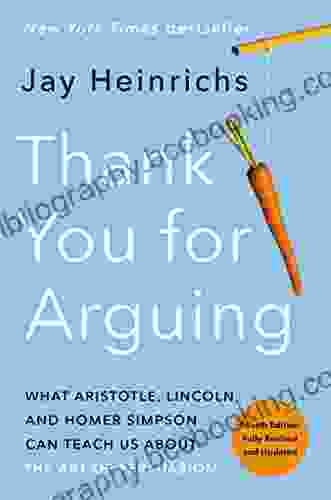
 Ervin BellMaster the Art of Argumentation with "Thank You For Arguing" | Fourth Edition...
Ervin BellMaster the Art of Argumentation with "Thank You For Arguing" | Fourth Edition... Jacob HayesFollow ·15.9k
Jacob HayesFollow ·15.9k Cade SimmonsFollow ·12k
Cade SimmonsFollow ·12k Deacon BellFollow ·2.6k
Deacon BellFollow ·2.6k Octavio PazFollow ·10.4k
Octavio PazFollow ·10.4k Elliott CarterFollow ·4.6k
Elliott CarterFollow ·4.6k Diego BlairFollow ·12.5k
Diego BlairFollow ·12.5k Caleb CarterFollow ·18k
Caleb CarterFollow ·18k Norman ButlerFollow ·17.4k
Norman ButlerFollow ·17.4k

 Luke Blair
Luke Blair101 Amazing Facts About Australia: A Journey Through the...
A Literary Expedition Unveiling the Treasures...
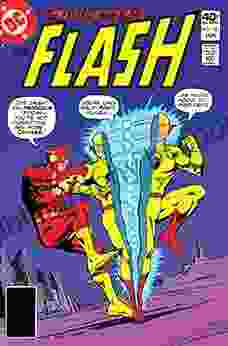
 Harry Hayes
Harry HayesWitness the Velocity and Legacy of the Scarlet Speedster:...
Delve into the Lightning-Charged...
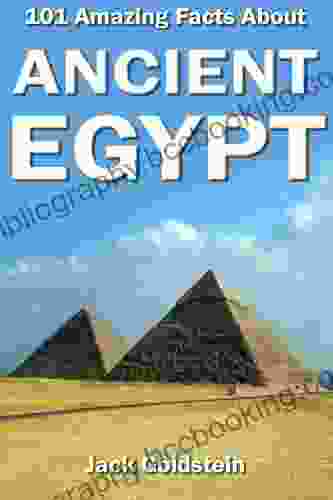
 Stan Ward
Stan Ward101 Amazing Facts About Ancient Egypt: Unraveling the...
: A Timeless Realm of Wonder Ancient Egypt, a...
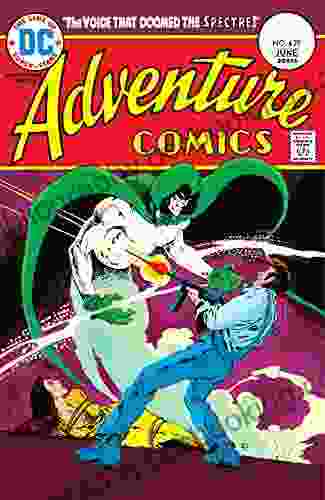
 Stephen King
Stephen KingEscape into Adventure: Unveil the Secrets of Adventure...
In the annals of comic book history,...
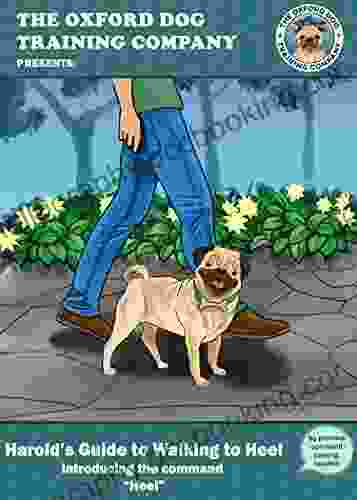
 Forrest Blair
Forrest BlairThe Oxford Dog Training Company Presents: A Holistic...
In the realm of dog...
5 out of 5
| Language | : | English |
| File size | : | 2307 KB |
| Text-to-Speech | : | Enabled |
| Screen Reader | : | Supported |
| Enhanced typesetting | : | Enabled |
| Print length | : | 282 pages |


